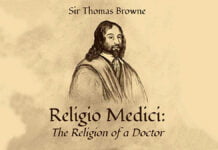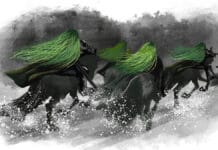There are different kinds of essay writing, and each form is supposed to follow a unique style and format. Coming up with a good essay is different from a child’s play. Some essay writing tips can make writing more accessible, as those tips are handy.
Even though there is a ton of space for inventiveness and customisation, most composed writings follow one of four pathways. The four kinds of essay writing are expository, persuasive, descriptive and narrative.
The distinction between kinds of essays is simply an issue of understanding the creator’s objective. It may be recounting a tale about an individual encounter, clarifying an issue, depicting something, or attempting to convince or persuade the peruser to acknowledge a specific perspective.
- Expository Essays: it’s all about facts
- Persuasive Essays: convince me if you can
- Descriptive Essays: make a picture
- Narrative Essays: tell a story
Even though all essay types follow similar centre standards, some perspectives make them stand apart. Interpretive expositions offer genuine data, enticing articles expected to impact, enlightening papers paint an image, and account papers recount a story.
Expository Essays
These are the most common types of essays one will come across. If one is writing an expository essay, he will find himself digging into a theme or topic and then coming up with an idea; he’ll also be analysing evidence and then structuring an “exposition” (hence the name) about the idea.
An expository essay is an academic writing wherein one has to research a subject utilising realities, insights, and models. One can achieve this in a few ways: characterising a term, looking into it, investigating circumstances and logical results, and so forth. The reason for existing is to clarify the subject consistently. Give a reasonable, adjusted examination without demonstrating individual feelings and connection to the subject.
- Manages to display the realities
- Told from a third-individual point of view
- For the most part, it has a five-passage structure
- Offers an answer to the issue
An essay may also be a critical analysis, an argumentative piece, or a philosophical enquiry, among others.
Analysis
An analytical essay attempts to understand the advantages and disadvantages of the topic discussed. It often looks at books, films, contemporary issues, or personal situations. It may also contain descriptive elements as it explains the subject to the reader.
Argument
An argumentative essay puts forward a point of view and tries to establish it well. It strongly questions the conventional views. Scientific essays that contradict time-honoured notions or path-breaking scientific discoveries fall into this category.
Reflective
A philosophical essay discusses a profound issue. Universal themes such as life, death, truth or faith form the themes of such essays. The essays of Aristotle and Plato are classic examples of philosophical writing.
Persuasive Essays
Persuasive essays do as the name appears; they endeavour to convince a crowd to accept that their side of a contention/banter is correct or better. This will require a few techniques for talk, including using ethos, poignancy, and logos. An understudy that accepts capital punishment ought to be nullified worldwide would make a contentious article stating realities and sentiments for their thinking. Influential exposition scholars must see how to introduce themselves as sound wellsprings of data, claim to feel, and intelligently reason with their crowd.
- Exhibited in a discussion position
- Can be told in the first or third individual
- It holds either a 4 or 5-section structure
- Utilisation assessments as a focus in a contention
- Find significant sources to shield their contention
- Locate the most trustworthy proof for the contradicting view
Descriptive Essays
As the name suggests, this essay is all about the language – adjectives, similes, and metaphors. These kinds of essays are about describing as vividly as possible anything you are asked to write about. An example assignment would be to write an essay about your most recent holiday experience. This would be an ideal time to use a descriptive essay. But structure here is just as important as any other essay because you are still in charge of leading the reader through and back out of your world of description without waffling on too much. So, similar to an expository essay, you will require an introduction, body and conclusion.
Descriptive essays train an author to depict symbolism. By utilising the five faculties of taste, sound, sight, contact, and smell, the author needs to paint the most precise picture conceivable. Doing this enables the peruser to get the most sensible representation. A typical case of an unmistakable article is utilised in school exposition composing. While submitting a school affirmation application, an inquiry requires the essayist to depict himself. Figuring out how to sell something using clear language and charming focuses will assist you with acing a distinct article.
A descriptive essay is more like a creative writing assignment where one describes something in detail. The description may be a part of the other types of essays. Still, they need a little more – an argument – while a descriptive essay describes something in detail, and the related thing is the central focus rather than an argument about something.
- Requires experimental writing and graphic aptitudes
- Can be told in the first, second, or third individual
- Generally written in 3-5 sections
- Gives subtleties utilising the 5 detects
- Plans to innovatively characterise some item or thought
Narrative Essays
Narrative Essays are utilised to recount a story. This composing takes an alternate street from the standard “research and investigation” style. This composing article permits one to get innovative. They can think of their plot, setting, characters, thoughts, etc. The motivation behind an account article is to show a thing or two through the story’s movement. As a peruser, one would need to feel a feeling of direction in perusing the content, which is the essayist’s definitive objective. Most books and stories are instances of account composing.
A narrative essay is a more personal piece of writing with your point of view being made clear for your reader. These essays can be stories or sometimes called “creative non-fiction.” The use of the first person pronoun ‘I’ is not uncommon in these essays. Narrative essays also require a clear structure introduction, body and conclusion populated with concise language.
- Recounts to a story with a reason
- Typically told in the main individual; however, it can be in the third
- It can be written in 3 sections or the size of a book
- Utilisation of allegorical language and heaps of statements
- Keeps things in a period of direct movement
- Add discourse between characters to add life to the article






























